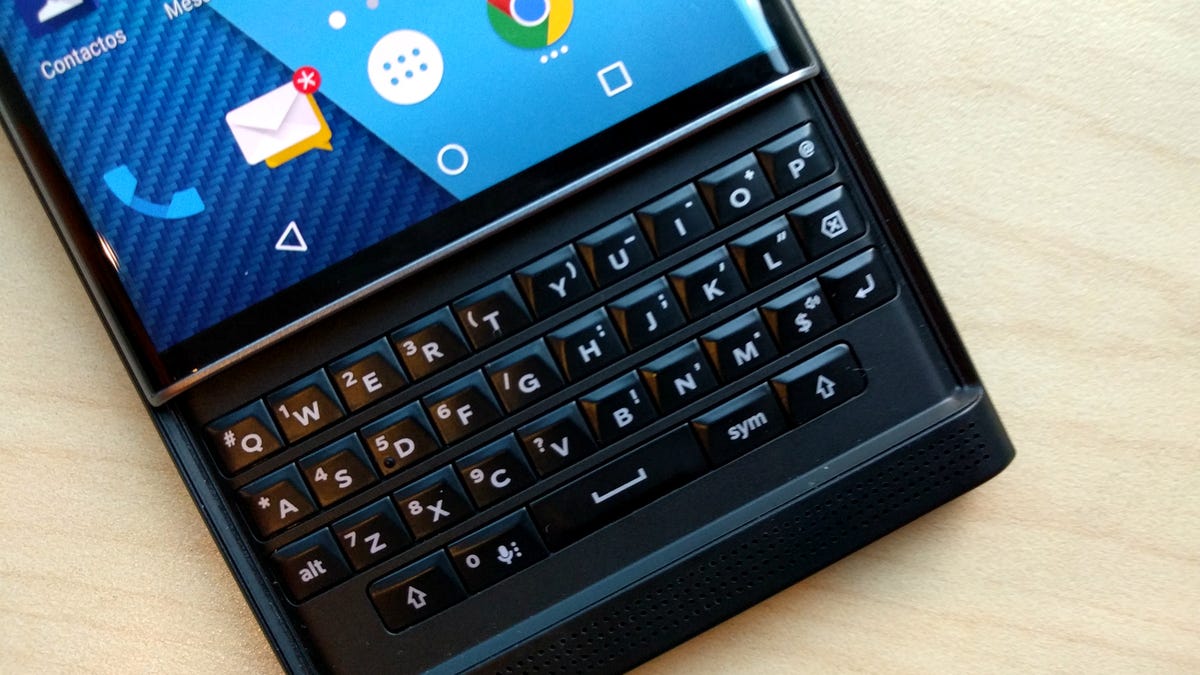BlackBerry Priv is faring worse than expected
An executive at carrier partner AT&T admits the Priv phone is "really struggling" and suffers a disappointing rate of returns.

BlackBerry's supporters are starting to waver.
An executive at AT&T, one of BlackBerry's longest allies, didn't pull any punches in an assessment of the latest flagship phone.
"The BlackBerry Priv is really struggling," the high-level executive, who asked not to be named, said last week. "We've seen more returns than we would like."
Wireless carriers are seldom publicly critical of their handset partners, and the sobering comments offer a rare glimpse into the troubles BlackBerry faces with the Priv, which is the first of its phones to run on Google's Android software. BlackBerry, once a global leader in smartphones, hoped the Priv, which features a slide-out physical keyboard, would at least get the company back on its feet in the mobile devices business.
Early indicators were already shaky. BlackBerry in April reported selling 600,000 phones in its fiscal fourth quarter that ended February 29, well below expectations of 850,000 for the quarter -- and below the 700,000 it sold in the preceding quarter. Still, BlackBerry insisted that the company was still on the path to profitability this year.
BlackBerry CEO John Chen may be inching closer to dumping hardware.
AT&T offered a more detailed account of why the Priv has disappointed. BlackBerry and the carrier expected to see demand for an Android phone with a physical keyboard. Instead, most of the buyers were BlackBerry loyalists, the executive said. Those faithful, however, struggled with the transition from the BlackBerry operating system to the Android operating system, leading to a higher-than-expected rate of return.
BlackBerry's decision to market the phone as a high-end device also hurt its prospects, the executive said. The Priv initially sold unlocked for $699, above the starting price of the iPhone 6S, which sells for $650. Few premium phones have fared well beyond devices from Apple and Samsung.
"There isn't much volume growth in the premium segment, where Apple and Samsung dominate," the executive said.
A spokesman for BlackBerry wasn't available for comment.
The assessment doesn't bode well for the future of BlackBerry's phones. CEO John Chen said in October that the company would exit the phone business, which has been on life support for years, if it cannot turn a profit in 2016.
BlackBerry also has planned to continue with its Android strategy. In January, Chen said he expected one -- and potentially two -- devices this year running on Google's software. The company isn't investing in hardware powered by the BlackBerry operating sytem, though.
The comments are particularly telling given that AT&T has stood by BlackBerry for years. Shortly after Chen took over in 2013, then-AT&T Mobility CEO Ralph de la Vega publicly threw its support behind the company. "We're supporting their efforts to continue being a viable supplier," de la Vega said at the time.
AT&T was the first US carrier to sell the Priv, followed by Verizon and T-Mobile.
Verizon and T-Mobile representatives declined to comment on Priv sales.
This article also appears in Spanish. Read: BlackBerry Priv: 'batallando' por mantenerse a flote en AT&T

